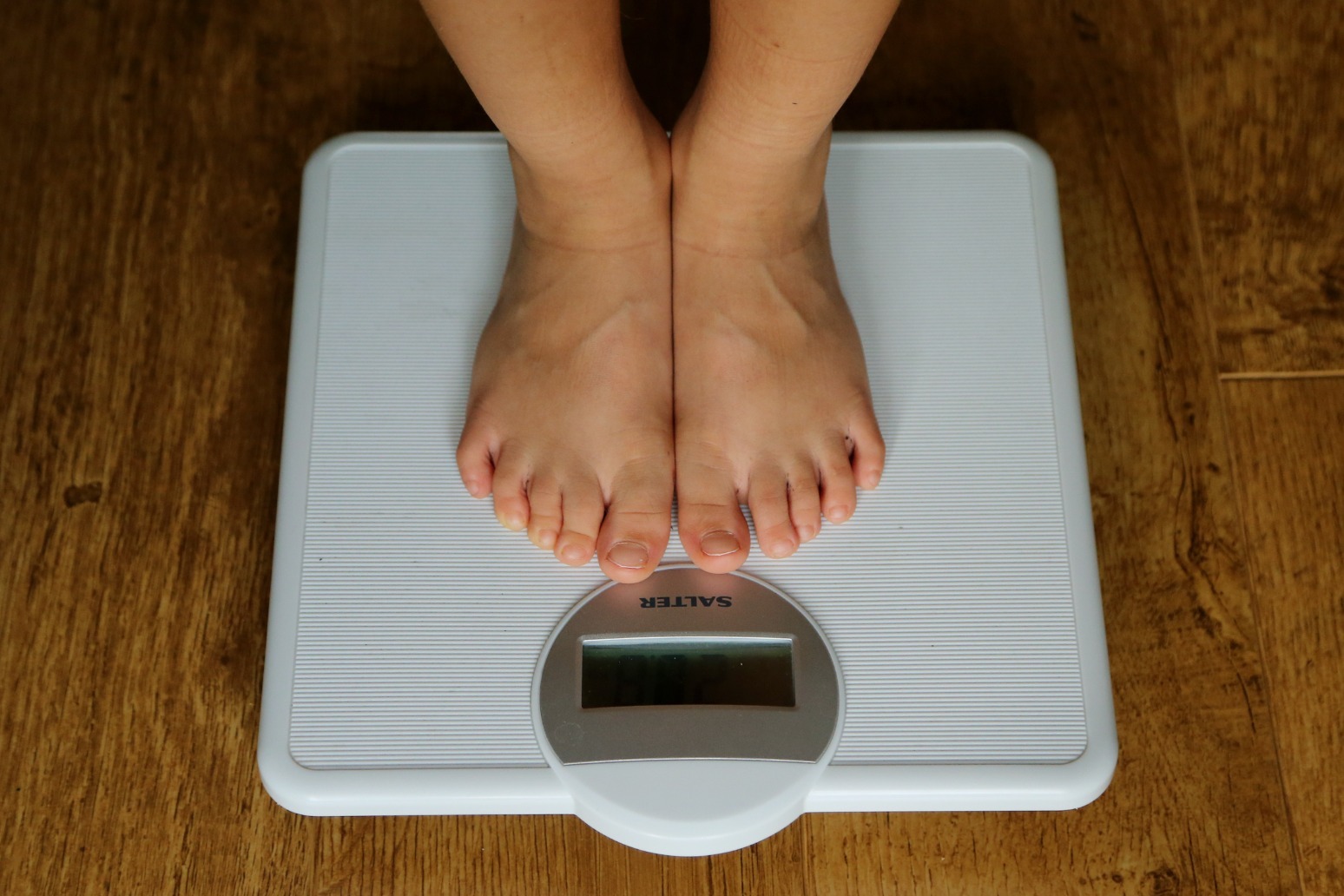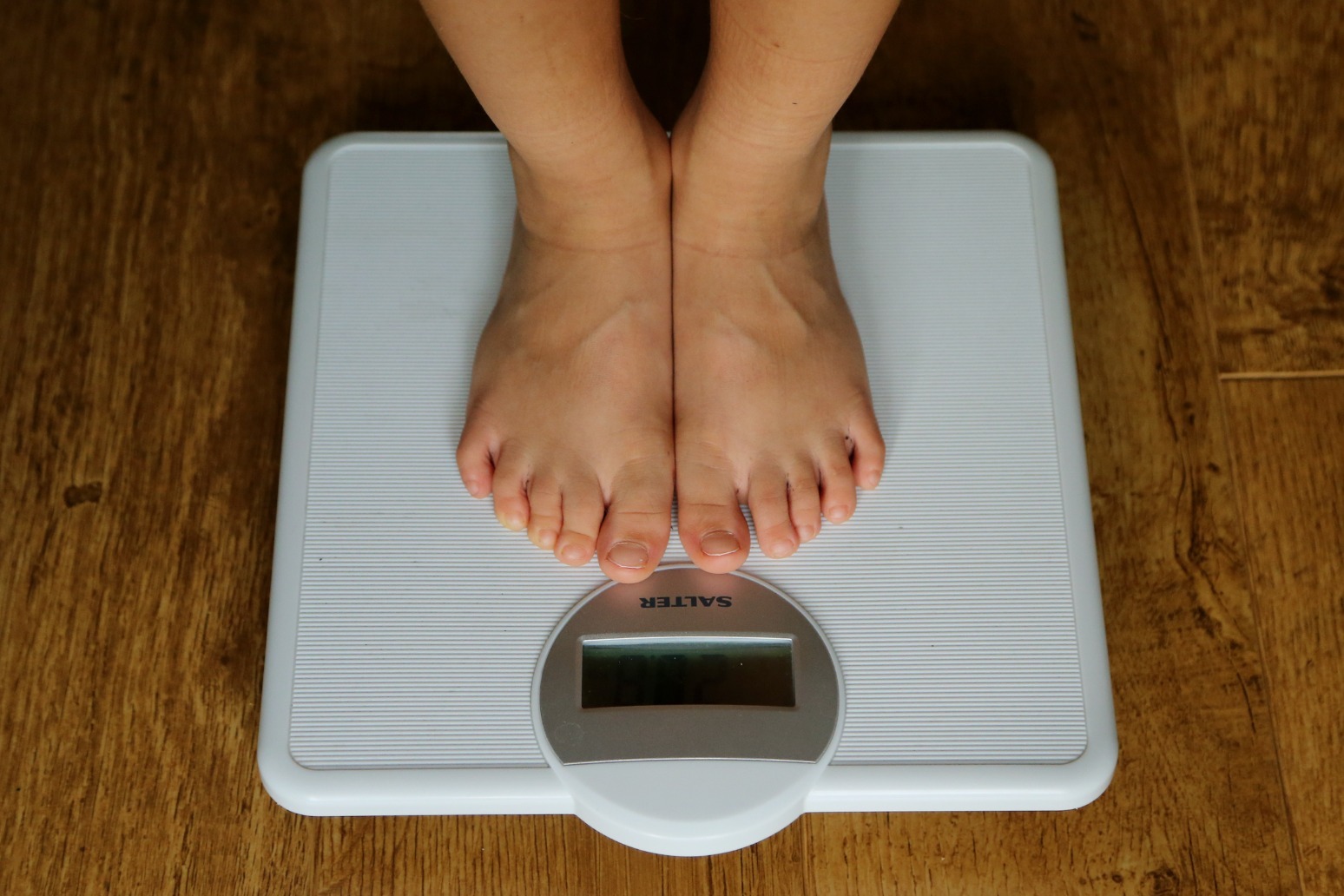Listeners:
Top listeners:
-
 play_arrow
play_arrow
WBPL – LIVE As Blackpool As You Are
 Adele - Easy On Me
Wow I love this song! Thank you for your amazing music!
Aria R.
Adele - Easy On Me
Wow I love this song! Thank you for your amazing music!
Aria R.
 Deep Purple - Smoke On the Water
Shoutout to the rainbow in my life, Gina!
Orion S.
Deep Purple - Smoke On the Water
Shoutout to the rainbow in my life, Gina!
Orion S.
 Luna Park - Space Melody (Radio Version)
Calling my cosmic companion, Jane! Hit play and let's embark on a musical space journey.
Luna Park - Space Melody (Radio Version)
Calling my cosmic companion, Jane! Hit play and let's embark on a musical space journey.


People are being “overdiagnosed” with obesity, leading medics have warned as they called for a “reframing” of the way the condition is diagnosed.
Academics have suggested that a body mass index (BMI) score is not “nuanced” enough to measure obesity and more assessments are needed before someone is told they are obese.
Solely using BMI can lead to both overestimates and underestimates of the number of obese people, they said.
For instance, some people may be very active and have no ill-effects of their weight but are still classified as obese.
Meanwhile, others may be suffering significant harm because of obesity, such as problems with their internal organs.
A new Lancet Commission – made up of more than 50 experts from around the world – said that a “radical overhaul” is needed in the diagnosis of obesity.
They said that “BMI useful but we need to go beyond BMI to determine excess body fat” and that the measurement tool should be used only as a “surrogate measure of health risk”.
And obesity should only be diagnosed using BMI when clinicians also take other measurements such as waist to hip ratio or waist to height ratio.
Ideally, obesity would be measured using total body fat, but the academics conceded that this would involve clinics “going beyond” what they would usually do to identify obese people because it can include more expensive and time-consuming body scans.
Researchers called for two new “diagnostic categories” of obesity. These are:
– Clinical obesity – defined as a “chronic systematic illness” whereby excess fat can lead to organ damage and cause “life-altering and potentially life-threatening complications”.
– Pre-clinical obesity is a “state of excess adiposity” where the person has a variable level of health risk, but no ongoing illness.
The authors said there has been “polarised” debate about whether obesity should be classed as an illness and these new definitions should help provide some clarity.
“Some people who are today classified as having obesity by BMI (but) they might play sports, they’re very active, they might have very strong bones – saying that those people have obesity and then classifying them as having a disease would obviously be an overdiagnosis,” said Professor Francesco Rubino, chairman of the commission and chairman of metabolic and bariatric surgery at King’s College London.
“This commission has been trying to deal with a more accurate way of diagnosing and classifying obesity in the first place.”
He went on: “No system – the NHS or others – have had these methods yet – I think everybody has been using the old classification for four decades, at least.
“But we are calling for a change, a radical change, because obviously, in the context of one billion people being classified as having obesity in the world today, and with a number that is projected to increase, no country is rich enough to be able to afford inaccuracy in the diagnosis of obesity.”
He added: “The message remains that obesity can be a health risk.
“What we’re proposing is to say that ‘it’s not only a health risk, for some it is actually an illness and that needs to be diagnosed’.
“And I think it’s sensible to understand what is this level of risk to decide what is the best course of action?
“If we were to give exactly the same intervention to everybody who has obesity – we have a billion people (with obesity) and you have to give the same intervention to everybody.
“Not only is (this) probably economically unsustainable, but it’s also not exactly what each individual needs, because the personalised care is what makes the effectiveness and (the) cost effectiveness of the interventions.
“And so we cannot afford having a blurry picture of obesity.”
It comes as the NHS has initiated the rollout of weight loss jabs for obese people meeting certain criteria.
In 2022, the government said obesity costs the NHS £6 billion every year, a figure which is expected to rise to more than £9.7 billion each year by 2050.
According to the latest Health Survey for England, some 29% of adults in England are obese.
And 15% of children aged two to 15 across England are obese, according to the survey.
Asked specifically about the National Childhood Measurement Programme, which measures the level of obesity in children using their height and weight to calculate their BMI score, Professor Louise Baur, chairwoman of child and adolescent health at the University of Sydney, said: “I’m just very pleased that actually, height and weight are actually being measured in children and young people because it’s a great measure of linear growth of failure to thrive, of overweight and multiple other things.
“So if paediatric people stop measuring height and weight, I think that’s almost the death of paediatrics to some extent – growth is part of childhood and abnormalities and growth are actually part of highlighting health problems.”
Commenting on the commission, Dr Kath McCullough, special adviser on obesity at the Royal College of Physicians, said: “For too long, we’ve relied on BMI as a simple measure of obesity, which has often misrepresented the condition and fails to fully reflect how excess body fat impacts a person’s health.
“The commission’s distinction between pre-clinical and clinical obesity represents a vital step forward, highlighting the need to identify and intervene early while providing appropriate care to those already experiencing severe health impacts.”
Katharine Jenner, director of the Obesity Health Alliance, said: “Our priority should be supporting those living with excess weight, rather than focusing solely on how it is measured.
“Currently, obesity treatment is inaccessible to those who need it most, namely individuals with the highest levels of excess weight, while our prevention policies remain insufficient.”
An NHS England spokesperson said: “Nice (the National Institute for Health and Care Excellence) has published updated guidance regarding the identification, assessment, treatment and personalised care of people who are overweight or living with obesity.
“Nice independently assesses the evidence and NHS England follows the guidance as published.”
Published: by Radio NewsHub
Written by: admin
Similar posts
-
Recent Posts
- JD Vance Greeted By Palestine Protesters As He Begins Holiday In Scotland
- Spurs Squander Late Two Goal Lead Before Super Cup Shoot Out Defeat To PSG
- Venus Williams Handed US Open Wild Card At The Age Of 45
- Teenage Killer Of Bhim Kohli Keeps Seven Year Sentence At Court Of Appeal
- Lammy Refers Himself To Environment Watchdog Over Rod Licence Error
Chart
-

1
Jonas Blue, Liam Payne And Lennon Stella
Polaroid
-

2
Tanja Thomas
One Way Ticket (To The Blues)
-
3
The Monkees, 01.01
I'm A Believer
-
Top popular

Difficult day as last blast furnace shuts down at Port Talbot steelworks

UK Government charters flight for Britons in Lebanon

Household energy bills to rise for winter as Ofgem lifts price cap

Downton Abbey creator Julian Fellowes Dame Maggie Smith was blessing in my life

Ringleader of plot to smuggle 76m of cocaine into UK hidden in bananas jailed

WHO WE ARE
We are bringing the fun back to the seaside city, and we live and love EVERYTHING Blackpool!
CONTACT
- info@wbplradio.com
Copyright The Mediasite UK - 2024.



